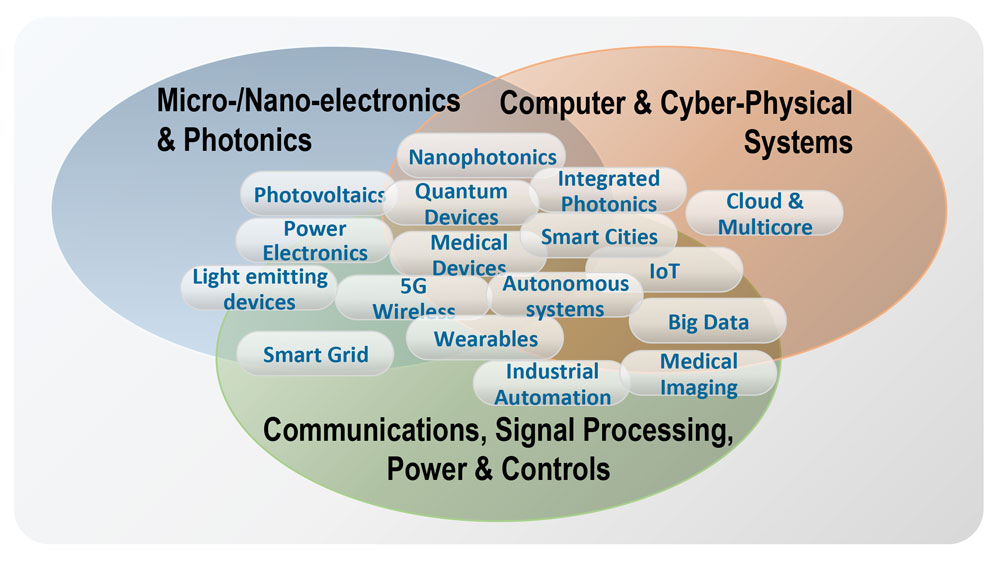Research
The Department of Electrical and Computer Engineering conducts cutting-edge research in the following major areas:
- Micro-/Nano-electronics and Photonics - for developing novel electronic, magnetic, and optical materials and devices for the next generation ultrafast computers, light emitters, photovoltaics, power electronics, wearable and implantable medical sensors for continuous health monitoring, etc.
- Communications, Signal Processing, Power & Controls - for advancing materials, devices, and algorithms to achieve great leaps in mobile/wireless technologies that can address the ever increasing demand for higher data rates and larger bandwidths, wireless telemetry for health monitoring, and for improving efficiency of energy generation and utilization, incorporation of sustainable and renewable power technologies to smart grids, and developing methodologies for control of ever increasingly complex systems ranging from industrial to nanoscale
- Computer & Cyber-Physical Systems - to develop architectures for ultrafast and low power computing, secure cyber-physical systems, embedded systems, autonomous vehicles, robots, and effective methods for processing big data and enhancing cloud and multicore computing, etc.
Funding for research in the abovementioned cross-cutting four areas of Electrical and Computer Engineering primarily comes from federal agencies (National Science Foundation, Department of Defense, Department of Energy, NASA, and National Institute of Health), state entities (Commonwealth Health Research Board, VCU) and industry, with research expenditures totaling to about $3 million.
